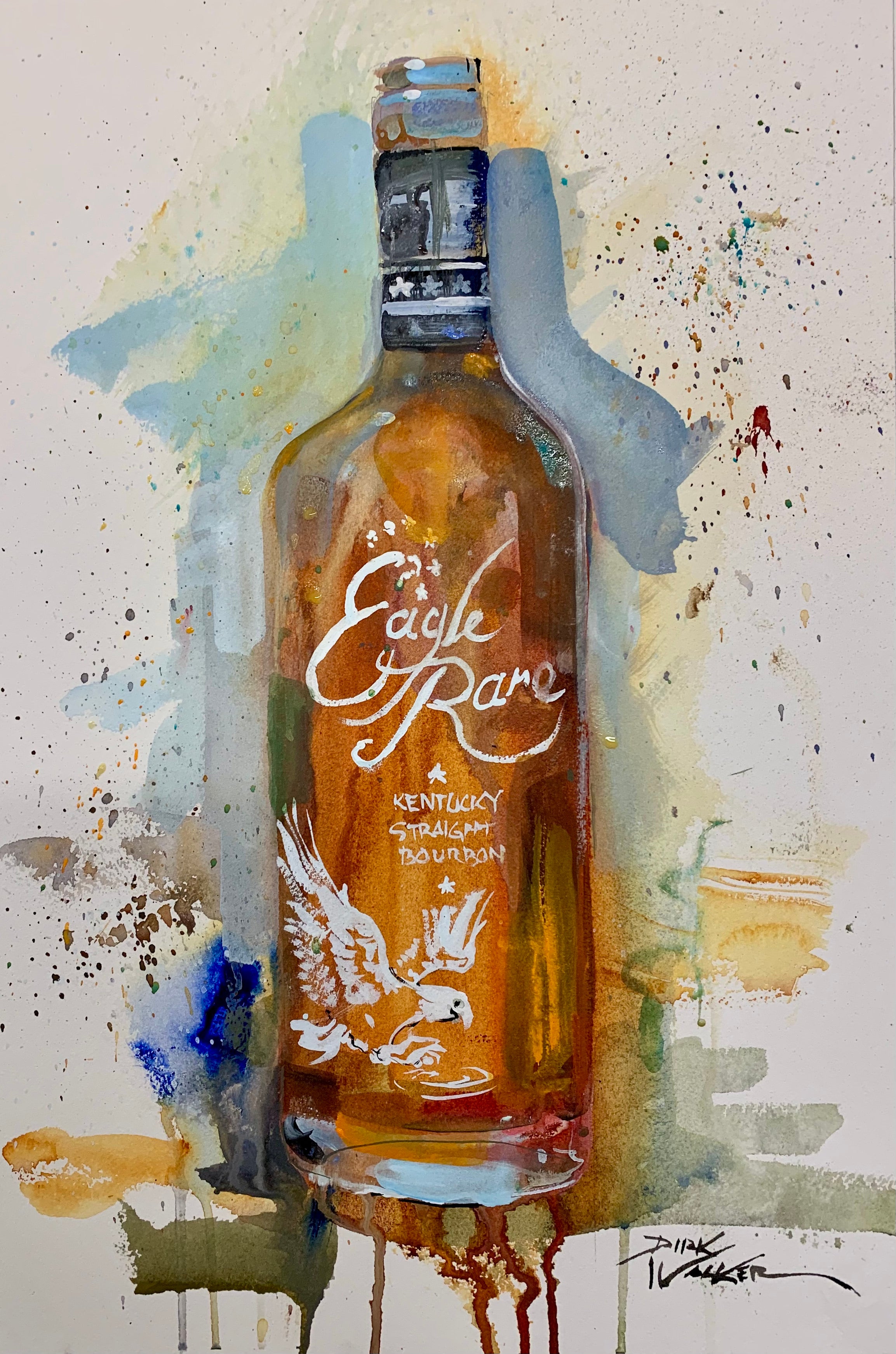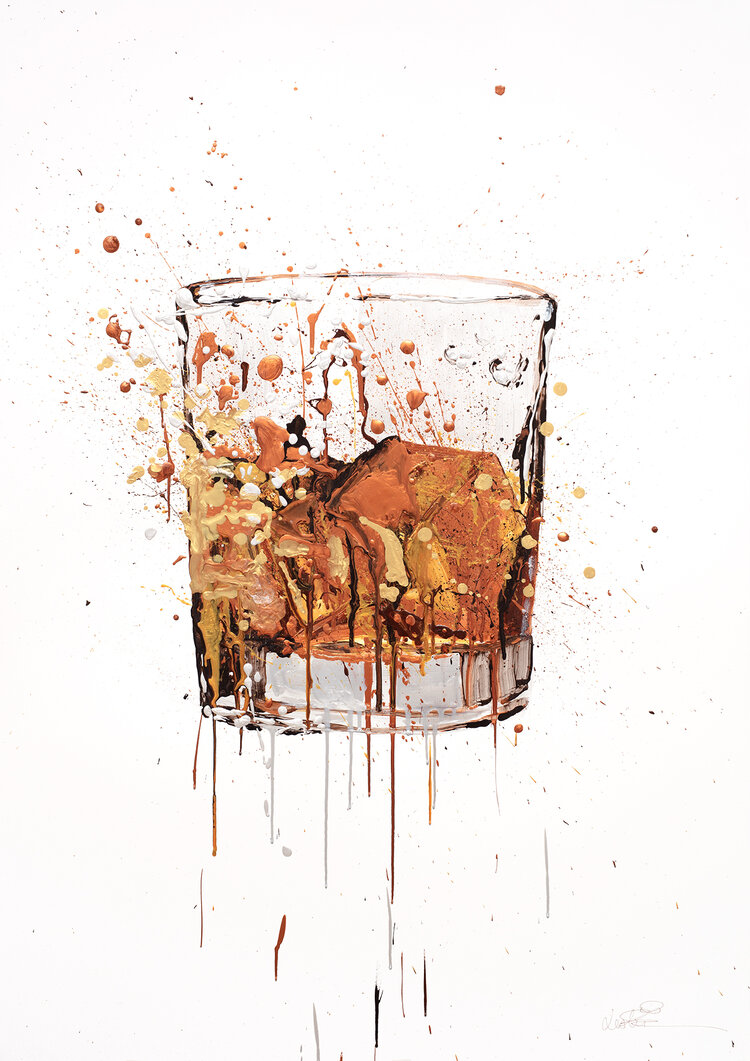Whiskey Art: Catching the Significance of Distillation in Every Brushstroke
Whiskey Art: Catching the Significance of Distillation in Every Brushstroke
Blog Article
Catching the Significance of Bourbon Art Via Unique Visual Depictions and Styles
The art of scotch prolongs past the fluid itself, showing up via a variety of graphes that encapsulate its fabled heritage and craftsmanship. From the meticulous design of labels that communicate brand narratives to evocative digital photography that captures the spirit's appeal, each creative expression serves to enhance the consumer's trip. As the sector accepts contemporary trends, the discussion surrounding these depictions comes to be significantly abundant and complicated, hinting at much deeper connections between society and creative thinking. What stays to be revealed is just how these advancing styles mirror not only the bourbon itself yet also the changing landscape of artistic analysis.
The History of Scotch Art

As whiskey production spread, so too did the need to raise its experience with art. From the elaborate inscriptions on early casks to the intricate labels of contemporary containers, each element shows an unique creative vision, acting as an aesthetic narrative of the scotch's heritage.
In the 19th and 18th centuries, the rise of the industrial transformation better enhanced scotch art, leading to ingenious product packaging and advertising that caught customer attention. Artists and designers began trying out aesthetic appeals, imbuing whiskey-related images with symbolic definitions that conveyed notions of neighborhood, custom, and craftsmanship.
Today, scotch art proceeds to progress, mixing standard techniques with modern art types. Limited Edition. This continuous discussion between the spirit and its visual representation underscores the enduring bond in between whiskey and society, improving the total experience for lovers worldwide
Iconic Bottle Styles
While numerous factors add to the attraction of bourbon, legendary container styles play an essential function fit consumer assumption and boosting the general experience. The visual presentation of bourbon bottles is not merely a visual factor to consider; it serves as a bridge between the item and the customer, stimulating emotions and establishing assumptions.
Unique shapes, products, and closures can raise a whiskey brand name's identification, making it instantaneously identifiable on congested racks. For example, the traditional Glenfiddich bottle, with its elegant conical silhouette, shares a feeling of custom and workmanship, while the vibrant, contemporary layout of the Balvenie container reflects technology and class. Additionally, making use of colored glass or one-of-a-kind textures can recommend the top quality and character of the bourbon within.
Iconic styles usually integrate components of cultural heritage, signifying the brand name's history and link to its origins. Brands like Jack Daniel's use an uncomplicated, robust style that reverberates with its American whiskey heritage. Eventually, the influence of bottle style expands beyond simple capability; it encapsulates the significance of the brand, welcoming customers to check out and delight in the rich tapestry of scotch society.
Tag Art Work and Branding
Container styles usually establish the phase of what consumers can expect, yet label artwork and branding play a similarly considerable duty in communicating a whiskey's identity. The tag functions as the initial factor of get in touch with between the product and the customer, enveloping the significance of the scotch within its visual elements.
Effective tag artwork integrates shade, images, and typography to produce a narrative that resonates with the brand name's heritage and target market. A tag including vintage typefaces and detailed images might stimulate a feeling of tradition and workmanship, appealing to aficionados. On the other hand, vibrant colors and modern-day layout aspects may draw in a more youthful market seeking innovation and enjoyment.


Photography and Visual Narration
Recording the essence of whiskey with digital photography and aesthetic storytelling is an art type that boosts the brand name experience. This tool transcends mere item depiction, delving right into the elaborate stories that surround each bottle. By utilizing engaging imagery, professional photographers can stimulate emotions that resonate with customers, inevitably forging a much deeper connection to the bourbon brand name.
Aesthetic narration in scotch digital photography typically makes use of rich appearances, lighting, and make-up to highlight the distinct features of the spirit. The interaction of light and darkness can emphasize the amber hues of scotch, while the selection of history components-- such as rustic barrels or sophisticated glass wares-- can strengthen the brand name's heritage or lifestyle associations.
Moreover, recording the ritualistic aspects of whiskey usage, from the putting to the tasting, welcomes audiences right into a sensory experience, enabling them to visualize the tastes and fragrances that await. Each i thought about this photograph not just showcases the product yet additionally tells a story of workmanship, practice, and the minutes that bourbon can boost - Whiskey Art. Thus, photography becomes a powerful device in verbalizing the identification of whiskey brand names, positioning them within the broader cultural landscape
Arising Trends in Scotch Art
The advancement of scotch art is increasingly formed by modern trends that mirror wider societal changes and consumer choices. One famous trend is the assimilation of sustainability right into art practices. Musicians are now making use of recycled products and green processes to produce whiskey-themed items, resonating with environmentally mindful consumers. This change not just highlights the value of sustainability but likewise enhances the story bordering scotch production.
In addition, digital art has risen in appeal, enabling for cutting-edge representations of whiskey. Musicians are leveraging modern technology to craft immersive experiences, such as augmented truth installments that engage audiences and give a much deeper understanding of whiskey's cultural value. This fad also prolongs to social media sites platforms, where straight from the source visually striking material gathers focus and fosters community among lovers.
Furthermore, partnerships between scotch brand names and musicians are becoming a lot more prevalent. These partnerships generate limited-edition packaging styles and special art work that commemorate both the craftsmanship of whiskey and the creativity of click to read more artists. As whiskey art remains to advance, these arising fads will certainly shape its future, fostering a dynamic intersection of culture, sustainability, and technology within the whiskey community.
Conclusion
To conclude, the art of whiskey incorporates a varied variety of graphes that show its rich heritage and craftsmanship. From legendary container layouts and complex label artwork to engaging digital photography, each component adds to a broader narrative that boosts the customer's experience. As emerging patterns, such as digital art and sustainability, continue to form this imaginative landscape, the multifaceted identity of bourbon stays an enduring resource of social connection and exploration.

In conclusion, the art of whiskey encompasses a varied range of aesthetic depictions that reflect its abundant heritage and craftsmanship.
Report this page